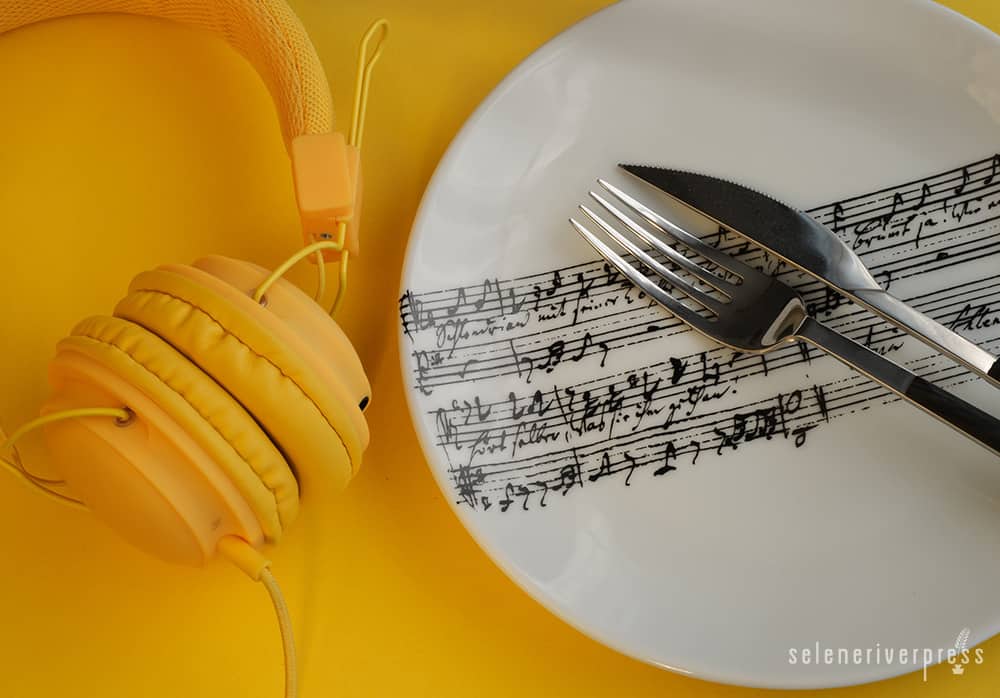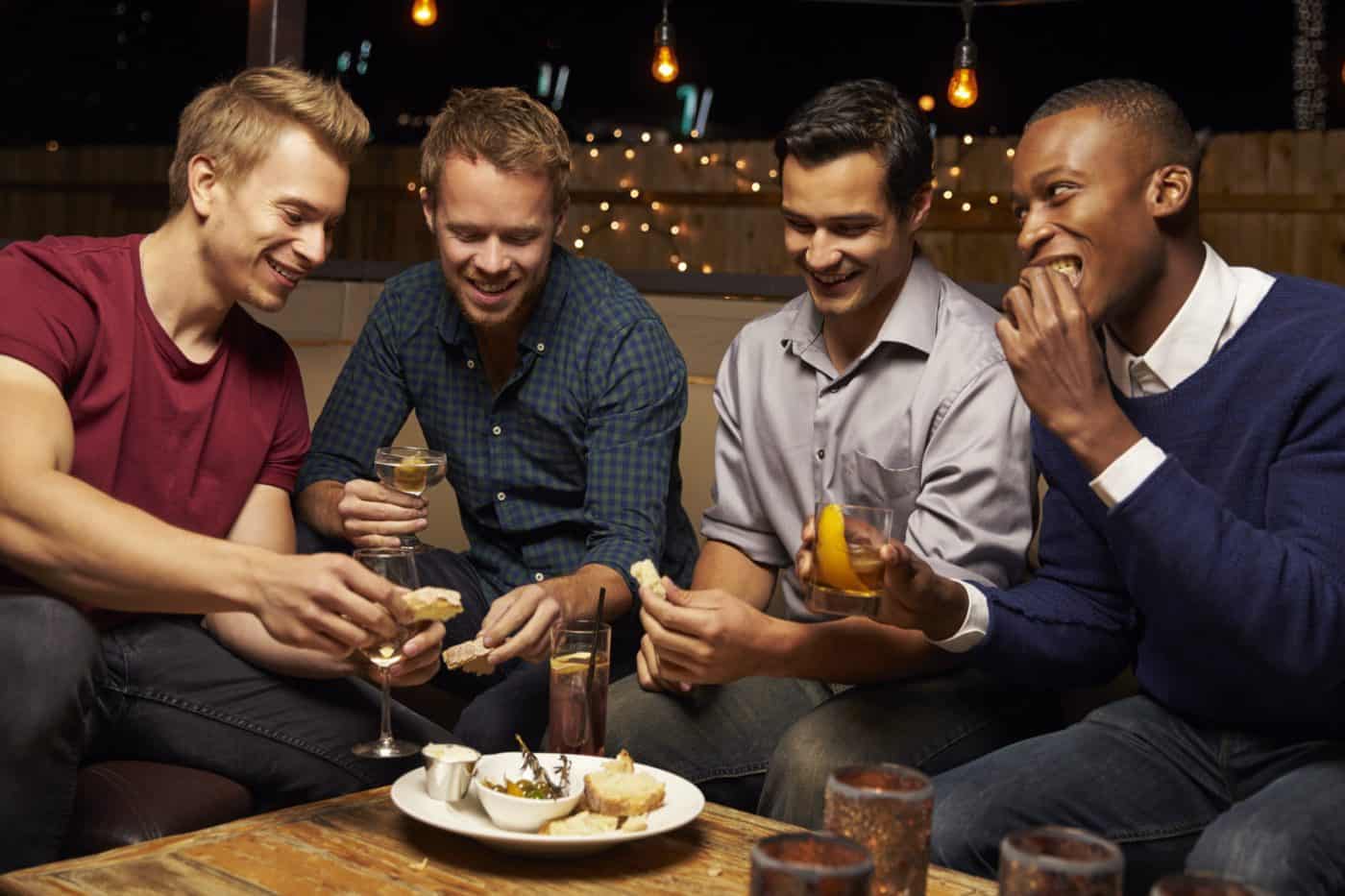Different senses affect how we perceive food. Imagine your grandma’s apple pie baking in the oven. If it smells flavorful, you’ll perceive that it will taste good as well. When you see how visually delectable it is as it cools on the counter, your assumption is even more confirmed. And when you feel that first bite of crispy crust and juicy filling in your mouth, just as expected, you verify that it is indeed scrumptious.
If our sense of smell, sight, and touch can affect how we presume a certain food will taste, why not our sense of hearing? This question has lately been the subject of in-depth studies, with researchers discovering some intriguing results that sound can affect the taste of our food. How so? Read on for some interesting possibilities.
The Attention/Distraction Theory
A number of scientific studies have come to the near unanimous conclusion that certain sounds help us focus while other sounds distract us—even when it comes to food.
If you’ve ever watched a movie where an actor must taste some newly launched food, you may have noticed that other characters in the scene—at least those who are concerned with the outcome—keep quiet as they wait for the verdict.
Why so? Maybe this quote from Emile Peynaud’s book The Taste of Wine will help us understand the phenomenon: “The sense of hearing can interfere with the other senses during tasting and quiet has always been considered necessary for a taster’s concentration.”
What does science say about it?
One study used neuroimaging to discover that when we concentrate on our sense of smell, we increase the neural connectivity between our olfactory cortex and our orbitofrontal cortex (a decision-making center). On the other hand, when we shift our focus to our sense of hearing, we decrease the connectivity between these two parts of our brain.
In other words, the smell and sight of food helps us focus our decisions about how we expect the chow will taste. If we’re distracted by the sounds around us, our focus is diminished, which will affect our decisions.
The Masking Theory
Have you ever wondered why commercials for KFC flaunt how crispy and crunchy their fried chicken is? Or why ads for Doritos include that loud crunch at the end?
What would happen if we could remove that sound? Or drown it out with an unrelated noise, say the choo-choo of a train? If the sound in the commercial doesn’t affirm how you already perceive the product, it’s possible that the foods in these ads wouldn’t seem quite as delicious as the companies want to convey.
What does science say about it?
Science finds opposing results when it comes to the masking theory. Some studies conclude that hearing ourselves bite into a crunchy food increased our perception of its taste. But other studies find that background noise (any sound at least 80 dB) decreased how much the study participants liked the sample food. And yet other studies report that people who listened to loud noise while eating something crunchy experienced an increased perception of the food’s crunchiness.
It’s then safe to conclude that the masking theory remains a hypothesis worthy of further investigation.
The Alerting Theory
If you’ve ever been to a bar or a club, you’ve surely noticed loud music playing in the background. This is by no means a coincidence. Pub owners play loud music to get their customers to buy more drinks. Interestingly, the noisier it is, the more patrons drink and eat.
What does science say about it?
One study on the relationship between sound and eating behavior finds that people in bars don’t actually enjoy their food or drink more when loud music is playing. Rather, this phenomenon could be the mind and body’s response to the anxiety and stress induced by loud music. In short, our mind seeks distraction from the loud music. Hence, it alerts our body to eat or drink some more.
The Sensation Transference Theory
Some of us like the ambience at Starbucks, while some of us prefer the mood at McDonald’s. Some of us prefer to eat alone, while some of us see dining as a social event. These individual preferences matter when it comes to how we perceive our food.
Say you love eating with friends. If you’re forced to eat alone, you might not be able to enjoy your food no matter how scrumptious it is. Your perception of the silence might affect how much you can appreciate the meal.
What does science say about it?
Some scientists posit that our reaction to noise, or a dearth of noise, is reflected in our perception of the taste of food or drink. The sensation that sound creates in us surely affects our taste buds.
So for each of us, our aural preferences are part of what makes an environment distracting or not. And those preferences affect how we perceive the food in front of us.
Can Sound Replace Sugar?
Is it possible for sound to replace an ingredient then? Can listening to the music we like enhance how our coffee tastes, even without sugar?
Some tests show that high-frequency sounds increase the sweetness of food, while low-frequency sounds enhance the bitterness. Because of these results, researchers are now looking into the possibility of using high-frequency sounds as a sugar alternative.
Not a bad idea, eh? I look forward to the day when I can order a cup of coffee with a dash of Mariah Carey’s whistle register and not worry about diabetes or any other sugar-induced diseases.
But in the meantime, why don’t you explore which sounds enhance and suppress flavors for you? Start browsing your playlist, and play it through your soundbar to see what tickles your sweet tooth.
Photos from iStock/stickasa (main image), milanvirijevic (girl with headphones), monkeybusinessimages (men eating)




